As a new report says Scotland needs a long-term plan for helping health professionals identify foetal alcohol spectrum disorder (FASD), Michael Alexander speaks to a Fife mother who has first-hand experience of the “carnage” it can cause.
Judith Clark didn’t realise it at the time, but when her son was just 10 months old, he was already showing signs of damage caused by exposure to alcohol in the womb.
As a toddler, he would bite his fingers until they bled, bang his head off the wall, eat plaster out of the wall and attempt to eat the carpet in his room.
Disruptive at nursery
Judith’s son attended a private day care nursery, who after six months requested that he “not return” to their care, due to him being “too much trouble”.
This was the point that Judith, and her then husband really began to think something was “different”.
“We used to call him ‘Captain Strap-In’, as in order to avoid chaos, there was a real need to have him secured in the buggy, in a high chair, car seat or baby walker,” she said.
“When he got on his feet it was just carnage.
“As we’d never had any children, we thought the hyperactivity and disruptive behaviour was normal.
“Then one day I was walking about the town centre and looking at young girls with two or three kids who were managing fine.
“They were acing motherhood and there was I unable to cope with one child.”
Realising there was a problem
Judith and her husband “struggled on”.
However, they reached a turning point when they went on holiday and on arrival their son spent over six hours switching the lights “on, off, on, off, on, off” in their hotel room.
The situation became so overwhelming for Judith’s son’s dad, that he packed his bags and returned home alone.
Back in Fife, they got their son a toddler bed.
However, within days he was able to dismantle the bed and “attack” them with bits of the wooden frame.
They’d already discovered they couldn’t have hard toys in his room because he’d throw those at them.
Eventually, Judith and her husband resorted to bolting the bed, through the carpet and into the floorboards and fitted locks on cupboards and wardrobe.
Referred to a paediatrician, Judith’s son was diagnosed with ADHD, aged four.
He continued to struggle “horrifically” with other children at school, as impulsive behaviour, emotional dysregulation and bullying escalated.
ADHD medication trials only served to make his aggression worse.
Alcohol disorder ‘light bulb’
The “light bulb came on” for Judith when she read information from Canada about Foetal Alcohol Spectrum Disorder (FASD).
FASD is an umbrella term that describes the adverse physical, emotional and behavioural challenges that affect people whose birth mother drank during pregnancy.
It is estimated that as many as 172,000 people could be affected by the disorder in Scotland, but it took six years for Judith’s son to be properly diagnosed.
“One day when he was about seven years old, I was due to go with him to an appointment at the ADHD clinic,” she said.
“He’d hurt me quite badly that morning.
“I went in to see the ADHD specialist and said: ‘I want to talk about FASD and I’m not leaving here until we talk about it’.
“The consultant agreed to the discussion.
“He transferred a couple of appointments and unknown to me he had an interest in FASD.
“I walked out of there with an FASD diagnosis.”
Judith, who grew up and lives in Fife, has worked in social work as a home care manager and then spent 10 years in public engagement within the NHS.
Judith then moved into the voluntary sector, working for Adoption UK in 2019, as FASD advisor with the Scottish Government-funded FASD Hub Scotland.
Turning frustration into action
When Judith’s son was diagnosed, she felt very isolated and said it was a “very lonely place to be”.
In 2020, Judith turned her frustration into action to establish a support service for families and individuals in Fife.
Judith now leads the service as FASD co-ordinator, which is hosted by Fife Alcohol Support Service.
Describing FASD as a “spectrum”, not everyone is impacted by FASD in the same way.
Some symptoms may be less obvious than others.
Prenatal alcohol consumption may not always impact at all.
However, Judith, who does not want to name her son or identify him through recent pictures, said: “There’s growing evidence more children diagnosed with ADHD may actually have FASD”.
She says there has to be much greater awareness about the potential impact of even small amounts of alcohol on the physical and behavioural development of unborn children.
What are the misconceptions?
“Almost 80% of children that come up for adoption have pre-birth alcohol exposure noted on their records,” she said.
“That’s huge. Those children come from birth families, where family life may have been quite chaotic.
“However, people think children with FASD are only born to women who have ‘problems’ with alcohol and that is simply not true.
“You ask any woman – when did you find out you were pregnant? It wasn’t at day one.
“I always talk about the ‘middle class working professional woman’ who comes home, cracks open a bottle of wine while she’s cooking dinner, has another glass while cooking dinner and another one watching TV – that’s drinking at binge levels.
“It could have been me.
“How many women were pregnant and carrying on their pre-pregnancy lifestyle, which nowadays normally includes alcohol?
“Perhaps they didn’t know they were pregnant until three or four months and the damage may already have been done?
“The reality is FASD is estimated at being around three to four times more prevalent than autism and is the most common neuro-developmental condition in the western world.
“That’s one kid in every classroom with FASD. Why do people not know about it?
“Mainly down to stigma, lack of awareness and knowledge.
“Often an ADHD diagnosis is seen as more ‘acceptable’ to parents, particularly birth parents, who may not wish to acknowledge the possibility that pre-birth alcohol exposure could be a contributory factor in their child’s difficulties.”
‘No drink, no risk’ approach
According to the NHS, the safest approach for pregnant women is not to drink alcohol at all during pregnancy to keep risks to their babies to a minimum.
The risk is greatest when alcohol passes across the placenta from the mother to the developing foetus, which cannot process alcohol effectively until the liver is fully developed and high levels of alcohol can affect the development of organs and the brain.
It’s thought risk to the developing foetus is greatest during the first three months of pregnancy when organs are forming – but damage can occur at any time.
Those affected by FASD can have a range of issues, such as differences in their facial features as well as learning and behavioural difficulties.
Approximately 3.2% of babies born in the UK are thought to be affected by FASD, which is nearly four times the rate of autism, but it often goes undiagnosed, misdiagnosed or is misunderstood by doctors and the public alike.
Care experienced or adopted children are at significantly increased risk of having FASD, with 75% of children placed for adoption having a history of alcohol exposure during pregnancy, according to recent Scottish government figures.
This can relate to a higher likelihood of “chaotic” backgrounds that these children originate from.
Wrong to ‘criminalise’?
Judith’s son has had “huge problems” with social interaction and has attended various schools both in and out of mainstream education.
She thinks it’s wrong for FASD children to be “criminalised” because they “cannot help” their behaviour, which should in fact be seen as a symptom of the condition.
However, it’s also taken its toll on her family, including family break-ups, “judgment” by the outside world and high levels of stress.
In December, a new report concluded that Scotland needs a long-term plan for helping health professionals identify FASD.
The study found very few are trained to diagnose the condition.
Professor Moira Plant, author of the Queen’s Nursing Institute Scotland report, confirmed some children who have symptoms are instead being diagnosed with other conditions.
Adoption UK estimates that up to one in 20 people in Scotland could have the condition.
90% of cases undiagnosed
Prof Plant said that a lot of health professionals say one important indicator was that children have specific facial features.
But she told the BBC: “We know only about 10% of children with Foetal Alcohol Spectrum Disorder have this specific facial set and therefore 90% of these children go undiagnosed.”
Prof Plant acknowledged the NHS is overwhelmed but added: “The reality is that health professionals are already seeing these children, young people and adults.
“You don’t grow out of Foetal Alcohol Spectrum Disorder.
“It’s a lifelong condition, so these children are already being seen but are not being diagnosed and therefore the burden on the health service is actually even greater.”
Prof Plant said affected babies tended to be short in length, light in weight and have smaller heads.
Some also suffer physical disabilities, such as congenital heart problems and issues with hearing.
One of the features constantly brought up by parents is that these children often don’t feel pain as much as other children.
Prof Plant said children can lead full lives with the condition but some will need lifelong support.
She said training was being set up for health professionals, parents and carers, including a dedicated hub at the University of Edinburgh.
Prof Plant added: “We need a longer-term plan in Scotland.
“Scotland’s relationship with alcohol has always been a close and tortured one and this is one of the results.”
Finding help and advice
If you live in Fife and believe that you or a family member has been affected by pre-birth alcohol exposure then help, information, advice and guidance is available from FASD Fife by calling 07540377707 or by emailing fasd.fife@fassaction.org.uk
If you live outside Fife, then you can access support from FASD Hub Scotland by calling their dedicated helpline on 0300 666 0006.
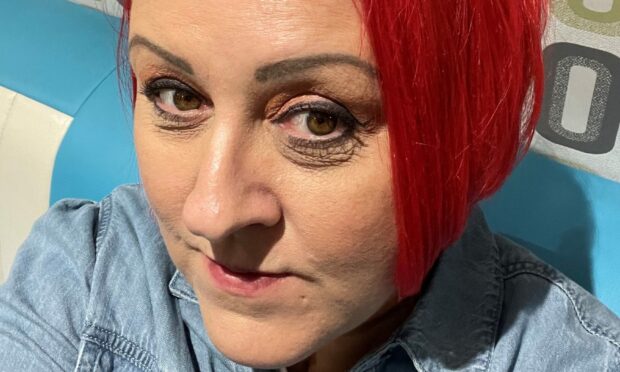



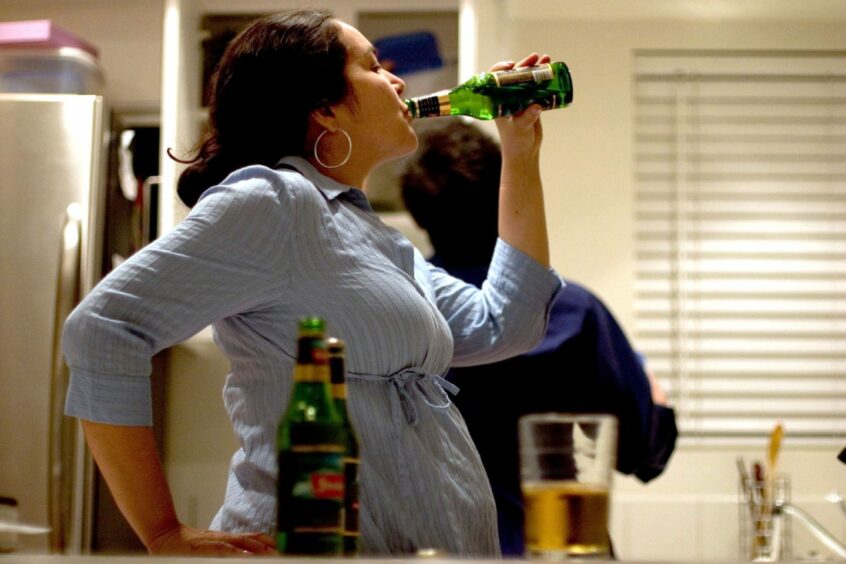

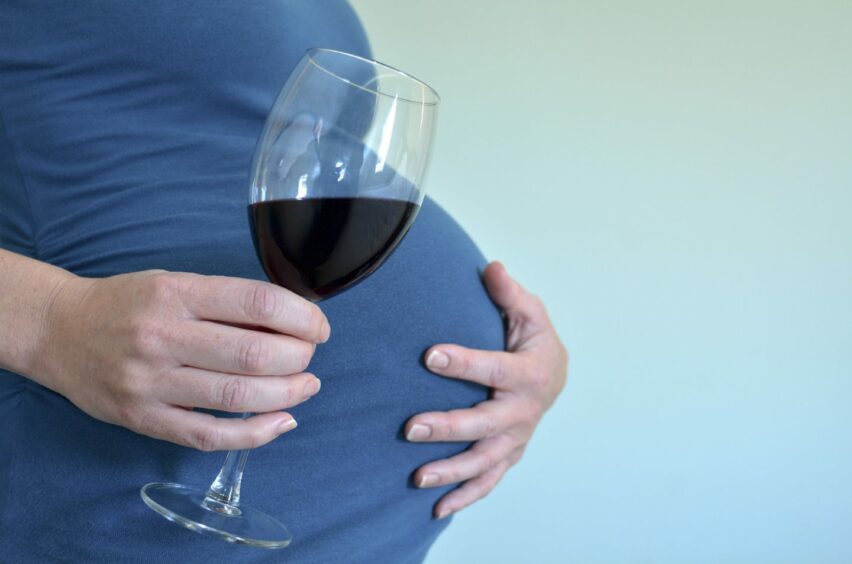
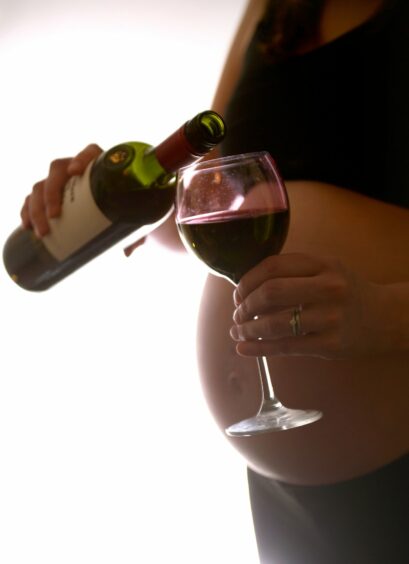
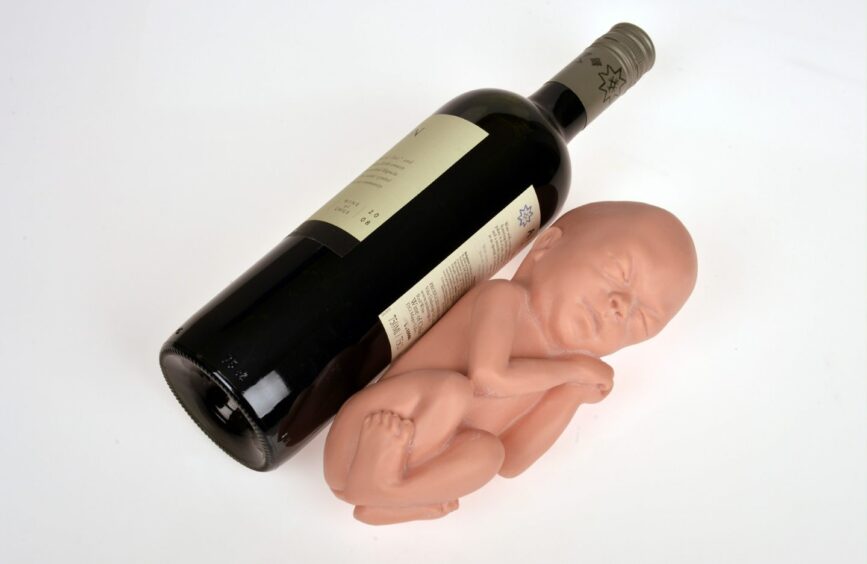
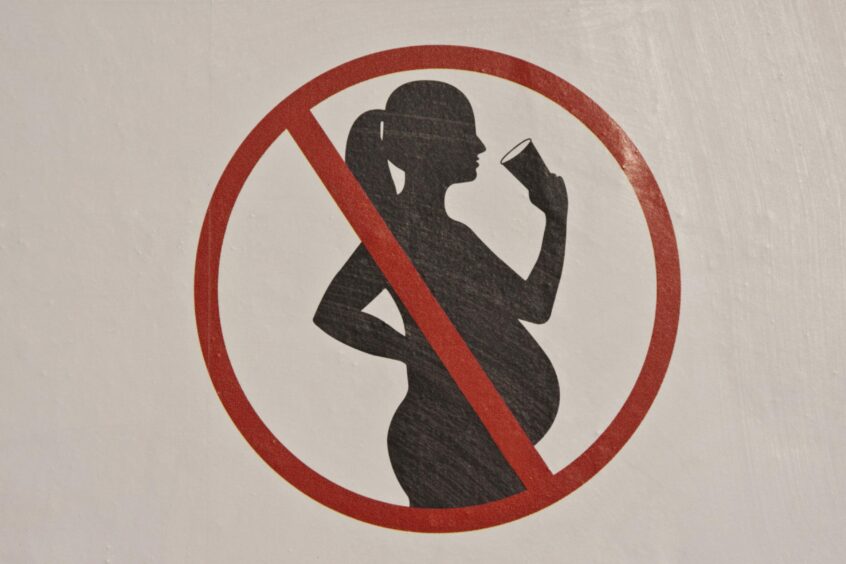



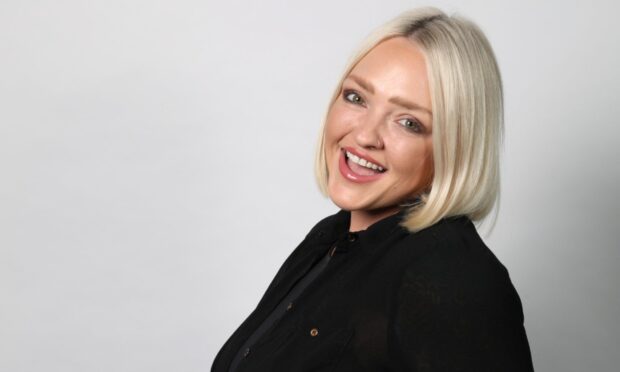







Conversation